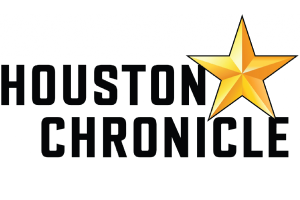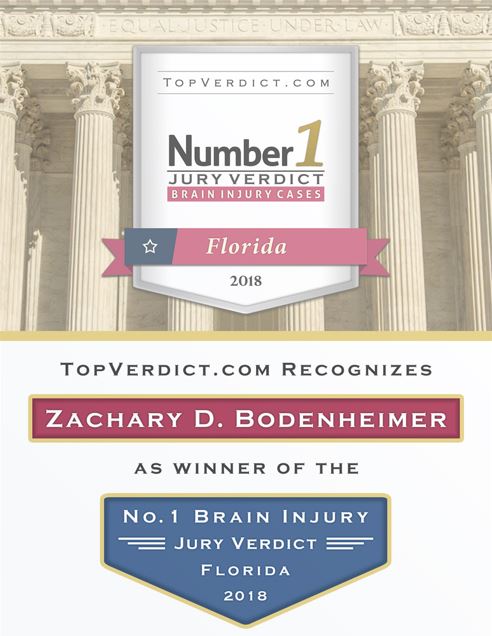- Free Consultation: 305-638-4143 Tap Here to Call Us
Can I Sue If My Sibling Dies in Florida? A Guide to Filing Wrongful Death Claims
Losing a sibling unexpectedly is a painful and life-altering experience. Beyond the emotional impact, their passing may leave a family with financial challenges, including funeral costs, medical bills, and the loss of their contributions to the household. If your sibling’s death was caused by someone else’s negligence, recklessness, or intentional actions, you may have the right to pursue a wrongful death claim to hold the responsible party accountable.
This guide explains how wrongful death claims work in Florida, including who can file a claim, what damages may be recovered, and common questions surrounding sibling-related wrongful death cases.
If you’ve lost a sibling due to negligence, the compassionate team at Flanagan & Bodenheimer Injury and Wrongful Death Law Firm is here to fight for the justice your family deserves. Call us at 305-638-4143 or fill out our online form to schedule a free consultation.
What Is a Wrongful Death Claim?
A wrongful death claim is a civil lawsuit brought against a person or entity whose negligent or intentional actions led to another person’s death. In Florida, these claims are governed by the Florida Wrongful Death Act (Florida Statutes § 768.16-768.26) and are intended to compensate surviving family members for the losses they’ve experienced.
The goal is to ensure surviving family members receive financial relief for expenses and the emotional toll caused by the untimely death.
Who Can File a Wrongful Death Claim for a Sibling in Florida?
Under Florida law, a wrongful death claim must be filed by the personal representative of the deceased person’s estate. The personal representative files the lawsuit on behalf of the deceased’s eligible surviving family members, which include:
- The surviving spouse: The spouse is typically the first and primary beneficiary in a wrongful death claim. They may recover damages for loss of companionship, protection, and support, as well as mental pain and suffering.
- Children of the deceased: Both minor and adult children may recover damages, but their eligibility depends on their relationship to the deceased. For example:
- Minor children (under age 25) may claim damages for loss of parental guidance and companionship.
- Adult children (25 and older) may also recover damages if there is no surviving spouse, but the scope of recovery may be limited.
- Parents of the deceased: Parents may recover damages for mental pain and suffering if their child was a minor at the time of death. If the child was an adult, parents may only recover damages in the absence of a surviving spouse or children.
- Blood relatives or adoptive siblings who were financially dependent on the deceased: Siblings who relied on the deceased for financial support may recover damages, but this is typically limited to situations where no other primary beneficiaries (spouse, children, or parents) exist or are eligible to file a claim.
What Does “Financial Dependency” Mean for Siblings?
For siblings, financial dependency is a critical factor in determining eligibility to recover damages in a wrongful death claim. Financial dependency generally means that the sibling relied on the deceased for essential support, such as:
- Regular financial contributions to household expenses (e.g., rent, utilities, or groceries).
- Support for education or medical care.
- Consistent monetary assistance that played a key role in the sibling’s livelihood.
The financial dependency must be demonstrable through evidence such as bank statements, records of financial transfers, or testimony from other family members. If the sibling was not financially dependent on the deceased and there are surviving spouses, children, or parents, the sibling is unlikely to recover damages under Florida law.
Can a Sibling Be the Personal Representative in a Wrongful Death Claim?
Yes, under Florida law, a sibling can serve as the personal representative of the deceased’s estate if certain conditions are met. The personal representative is a crucial role in a wrongful death claim, as this individual is responsible for filing the lawsuit on behalf of the deceased’s estate and eligible survivors. Their responsibilities include managing the legal process, gathering evidence, and ensuring that any compensation is distributed according to Florida’s laws and the terms of the deceased’s will (if one exists).
Who Can Serve as a Personal Representative in Florida?
Florida Statutes § 733.301 outlines the rules for appointing a personal representative. In general:
- The deceased’s will typically names the personal representative. If the will explicitly designates a sibling, they will likely serve in this role.
- If there is no will (intestate estate), Florida law prioritizes the appointment of a personal representative in the following order:
- Surviving spouse.
- A person selected by a majority of the deceased’s heirs.
- The closest heir under Florida’s intestate succession laws.
If the deceased was unmarried, had no children, and the parents are either deceased or unwilling to serve, a sibling may be appointed as the personal representative. In cases involving multiple siblings, the court may prioritize the sibling with the greatest interest in the estate or the one best suited to manage the responsibilities.
What Are the Duties of a Sibling as Personal Representative?
A sibling serving as the personal representative has several critical responsibilities, including:
- Filing the Wrongful Death Claim: The personal representative initiates the lawsuit on behalf of all eligible survivors. This includes hiring legal counsel, managing court filings, and overseeing the legal process.
- Identifying Eligible Survivors: The personal representative must identify and include all eligible family members, such as a surviving spouse, children, parents, or financially dependent siblings.
- Collecting and Distributing Compensation: Any damages recovered through the wrongful death claim must be allocated to the survivors based on their relationship to the deceased and their specific losses. The personal representative is responsible for ensuring these distributions comply with Florida law.
- Managing the Estate: Beyond the wrongful death claim, the personal representative handles the deceased’s estate, including paying debts, managing assets, and distributing inheritances to beneficiaries.
- Communicating with Survivors: The personal representative must keep all survivors informed about the progress of the lawsuit and ensure their interests are represented.
Does Being the Personal Representative Mean You’re Entitled to Compensation?
No, serving as the personal representative in a Florida wrongful death claim does not automatically entitle you to receive compensation from the settlement or award. The role of the personal representative is purely administrative and legal—your primary responsibility is to act on behalf of the deceased person’s estate and eligible survivors. Compensation is distributed to survivors based on their relationship to the deceased and their specific losses, not on who serves as the personal representative.
Can a Personal Representative Be an Eligible Survivor?
While the personal representative may also be an eligible survivor (e.g., a sibling, spouse, or parent), their entitlement to compensation depends on their relationship to the deceased, not their role as the personal representative. For example:
- If the personal representative is the deceased’s sibling, they would need to prove financial dependency on the deceased to qualify for compensation.
- If the personal representative is the spouse, child, or parent of the deceased, they may automatically qualify for certain damages under Florida law.
If the personal representative is not an eligible survivor (e.g., a distant relative or a court-appointed representative), they will not receive any compensation from the wrongful death settlement or verdict. But they will be eligible for a fee for their time and energy spent serving as the personal representative.
What Happens to Compensation in a Wrongful Death Claim?
The compensation from a wrongful death claim is distributed in two ways:
- To the Estate: Damages that reimburse the estate for expenses like medical bills, funeral costs, or lost income are paid into the estate. These funds may later be distributed to heirs based on the deceased’s will or Florida’s intestacy laws.
- To Survivors: Damages for emotional loss, companionship, or financial support are paid directly to eligible survivors. The personal representative does not control or decide this distribution—it is determined by Florida law and the court.
Free Consultation With a Florida Wrongful Death Attorney

Losing a sibling due to someone else’s negligence is a heartbreaking experience, and navigating the legal complexities of a wrongful death claim can feel overwhelming during such a difficult time. At Flanagan & Bodenheimer Injury and Wrongful Death Law Firm, we are here to help.
If your sibling’s death was caused by negligence, recklessness, or intentional actions, you may have the right to pursue a wrongful death claim. Even if you’re unsure whether you qualify as a survivor under Florida law, our experienced attorneys can evaluate your situation, identify all eligible survivors, and work to ensure they receive the compensation they deserve.
We understand that every family’s circumstances are unique, and we’ll guide you through every step of the process with compassion and care. From investigating the cause of your sibling’s death to filing the wrongful death lawsuit and pursuing fair compensation, we will handle the legal burden so your family can focus on healing.
Contact us at 305-638-4143 or complete our online form for a free consultation in English or Spanish.












